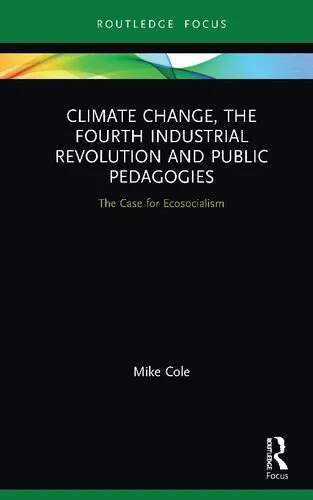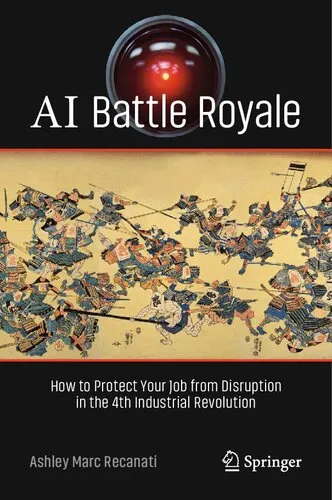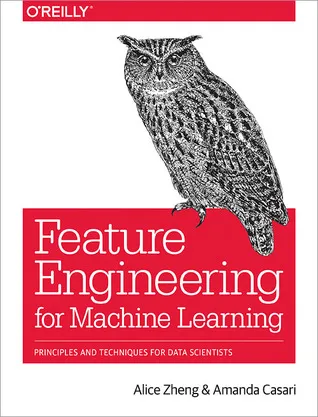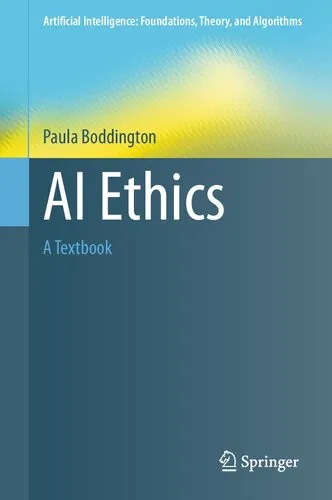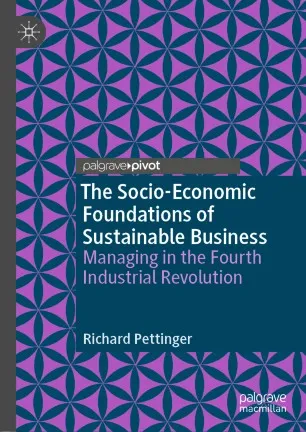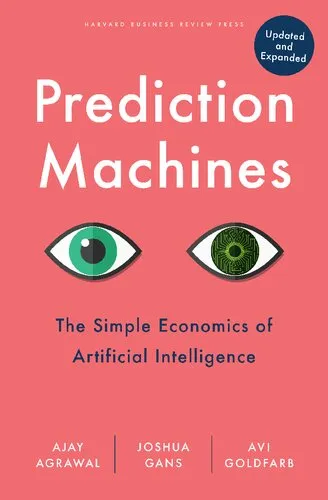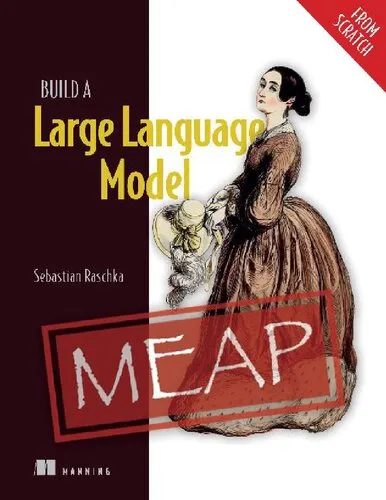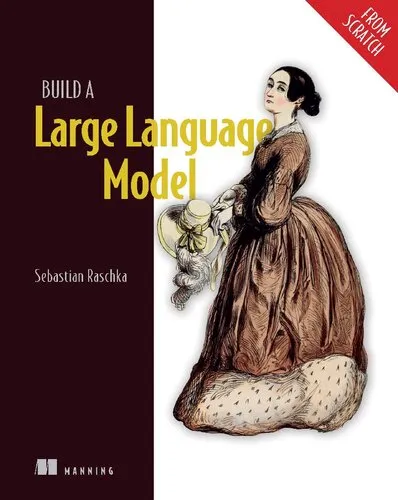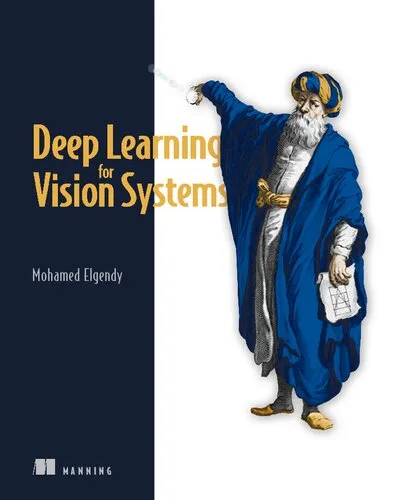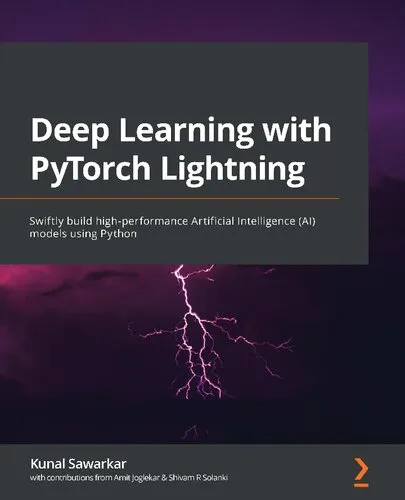Climate change, the fourth industrial revolution and public pedagogies : the case for ecosocialism
4.3
بر اساس نظر کاربران

شما میتونید سوالاتتون در باره کتاب رو از هوش مصنوعیش بعد از ورود بپرسید
هر دانلود یا پرسش از هوش مصنوعی 2 امتیاز لازم دارد، برای بدست آوردن امتیاز رایگان، به صفحه ی راهنمای امتیازات سر بزنید و یک سری کار ارزشمند انجام بدینکتاب های مرتبط:
مقدمهای بر کتاب
کتاب "Climate Change, the Fourth Industrial Revolution and Public Pedagogies: The Case for Ecosocialism" که توسط مایک کول نوشته شده است، تجزیهوتحلیل عمیقی از تعاملات پیچیده بین بحرانهای محیطزیستی کنونی، پیشرفتهای سریع تکنولوژیک، و نقش آموزشهای عمومی ارائه میدهد.
خلاصهای مفصل از کتاب
در این کتاب، نویسنده با تأکید بر تغییرات آب و هوایی، به تبیین چهاردهمین انقلاب صنعتی و تأثیر آن بر محیط زیست میپردازد. مباحث اصلی کتاب شامل بررسی فناوریهای جدید همچون هوش مصنوعی، رباتیک، و Internet of Things و نقشی که این فناوریها در تشدید یا کاهش اثرات تغییرات آب و هوایی ایفا میکنند، میشود. در ضمن، کول بر جنبشهای اجتماعی اکوسوسیالیستی تأکید دارد که هدفشان دستیابی به عدالت زیستمحیطی و جلوگیری از فاجعههای بیشتر محیط زیستی است.
نکات کلیدی
- ایجاد ارتباط بین فناوریهای پیشرفته و تغییرات آب و هوایی.
- روندها و روشهای آموزشی موثر برای برانگیختن آگاهی عمومی در مورد بحرانهای محیط زیستی.
- بررسی دیدگاههای اکوسوسیالیستی و تحلیل جنبشهای اجتماعی جایگزین.
بارزترین نقلقولها از کتاب
"اگر به سرعت و با قاطعیت عمل نکنیم، تکنولوژیهای جدید فقط عمق بحرانهای محیط زیستی کنونی را افزایش خواهند داد." - مایک کول
"رویکردهای آموزشی جدید نه تنها باید بر تقویت آگاهی عمومی متمرکز باشند، بلکه باید جنبشهای اجتماعی نوآورانه را نیز تشویق کنند که میتوانند عدالت زیستمحیطی را ارتقاء دهند." - مایک کول
چرا این کتاب اهمیت دارد
این کتاب بهطور قاطع نشان میدهد که چگونه تکنولوژیهای نوظهور میتوانند هم بحرانهای فوری محیط زیستی را تشدید کنند و هم راهحلهایی خلاقانه برای آنها به ارمغان بیاورند. اهمیت کتاب به دلیل ارائه دیدگاههای نوآورانه و عملی در مورد روشی است که جنبشهای آموزشی میتوانند برای مقابله با تغییرات آب و هوایی و ساختن دنیایی پایدارتر بهرهبرداری شوند. همچنین، مخاطبان را به تأمل درباره راهحلهای اجتماعی و سیاسی که از دیدگاههای اکوسوسیالیستی ناشی میشوند، دعوت میکند. این کتاب برای همه علاقمندان به تغییرات محیط زیستی و اجتماعی، سیاستگذاران و همچنین پژوهشگران حوزههای مرتبط، منابع ارزشمندی ارائه میکند.
Introduction
Welcome to "Climate change, the fourth industrial revolution and public pedagogies: the case for ecosocialism," a transformative exploration aimed at unraveling one of the most profound challenges of our time—climate change—and examining it through the lens of the Fourth Industrial Revolution and its implications for public pedagogies. This book is an urgent call to action and a comprehensive guide for understanding how the intersection of technology, education, and economic systems can be reimagined to foster a more sustainable and equitable future. Through this introduction, readers will gain insights into the book's core themes, key takeaways, notable quotes, and its significance in today's global discourse.
Detailed Summary of the Book
The book is built on the premise that climate change is not merely an environmental or scientific issue but a socio-economic and political one. It postulates that the Fourth Industrial Revolution, characterized by rapid advancements in AI, robotics, and biotechnology, accentuates the need for transformative change in our societal structures. At its core, the book advocates for ecosocialism, a political philosophy that merges ecological sustainability with socialist principles, to combat the unsustainable practices driven by neoliberal capitalism.
The work begins by analyzing the existential threat posed by climate change, emphasizing the role industrial activities and economic systems have played in exacerbating this crisis. It provides a historical account of industrial revolutions, highlighting how each has shaped society and emphasizing that the current technological revolution offers unprecedented opportunities—and threats—for the global community.
A significant portion of the book is dedicated to public pedagogies—educational practices and strategies that extend beyond traditional classroom settings—and their potential to foster critical consciousness and active ecological citizenship. By engaging with culture, media, and technology, public pedagogies can play a vital role in reshaping perceptions and driving societal change towards ecosocialism.
Key Takeaways
- The Fourth Industrial Revolution provides both tools and challenges that must be navigated to address climate change effectively.
- A shift towards ecosocialism is essential to create an equitable and sustainable world.
- Public pedagogies are crucial in educating and mobilizing individuals towards active ecological and social participation.
- Interdisciplinary approaches combining technology, education, and policy are necessary for effective climate action.
Famous Quotes from the Book
"In facing the unprecedented challenge of climate change, we must embrace an unprecedented synthesis of technology, education, and egalitarian principles."
"Ecosocialism is not just a political alternative; it is an existential necessity for the preservation of both humanity and our planet."
"Public pedagogies have the potential to awaken ecological consciousness and inspire transformative action at societal levels."
Why This Book Matters
This book is significant because it addresses the urgent necessity to rethink our current trajectory at a time when the stakes could not be higher. While discussions on climate change often become mired in technical details or political gridlock, this book cuts through by providing a holistic framework that incorporates technological innovation, educational strategies, and economic reform. It matters because it dares to envision a world where sustainability and equity are not just aspirational ideals but attainable futures.
Through a bold synthesis of ideas, "Climate change, the fourth industrial revolution and public pedagogies: the case for ecosocialism" offers a roadmap for academics, policymakers, educators, and activists alike to engage with one of the most pressing issues of our time. By crafting a compelling narrative that bridges the gap between ecological urgency and socio-economic opportunity, this book serves as both a call to awareness and a catalyst for action.
دانلود رایگان مستقیم
شما میتونید سوالاتتون در باره کتاب رو از هوش مصنوعیش بعد از ورود بپرسید
دسترسی به کتابها از طریق پلتفرمهای قانونی و کتابخانههای عمومی نه تنها از حقوق نویسندگان و ناشران حمایت میکند، بلکه به پایداری فرهنگ کتابخوانی نیز کمک میرساند. پیش از دانلود، لحظهای به بررسی این گزینهها فکر کنید.
این کتاب رو در پلتفرم های دیگه ببینید
WorldCat به شما کمک میکنه تا کتاب ها رو در کتابخانه های سراسر دنیا پیدا کنید
امتیازها، نظرات تخصصی و صحبت ها درباره کتاب را در Goodreads ببینید
کتابهای کمیاب یا دست دوم را در AbeBooks پیدا کنید و بخرید
